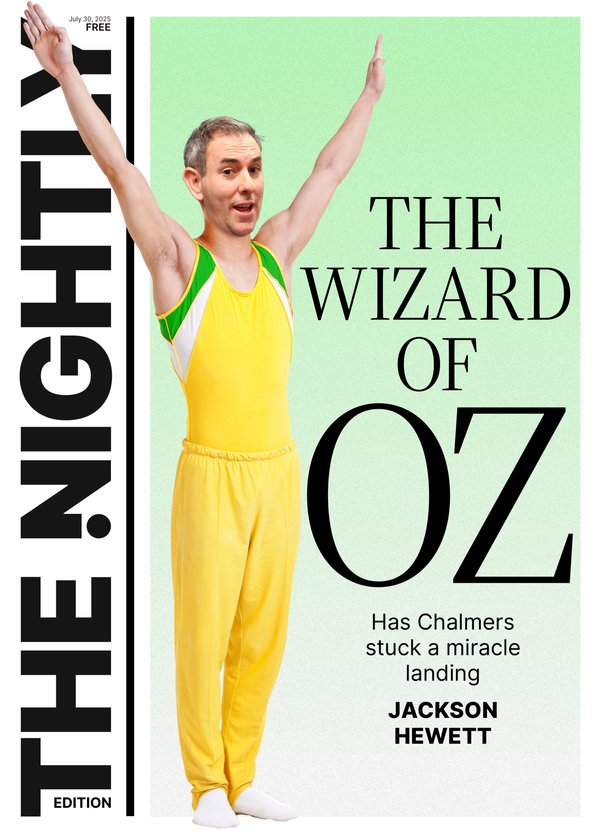ALAN KIRKLAND: The reasons why ASIC has cracked down on unregulated financial accounts

There’s a reason the word “influencer” has become so powerful. People often feel like they come to know and trust those they follow online.
But when it comes to your finances, trust should be earned — not assumed.
Social media has reshaped how young Australians engage with financial information. According to recent research by ASIC’s Moneysmart, 41 per cent of Australians aged 18 to 30 turn to social media platforms to seek financial advice or information.
Sign up to The Nightly's newsletters.
Get the first look at the digital newspaper, curated daily stories and breaking headlines delivered to your inbox.
By continuing you agree to our Terms and Privacy Policy.This is not inherently a problem, but when unlicensed and unqualified individuals start spruiking complex, high-risk products such as contracts for difference, the risk of real harm escalates rapidly.
Many of the problems that we have witnessed online over time have stemmed from everyday social media users unaware that they were straying into territory that required a financial services licence.
Often, they were promoting exchange-traded funds or general budgeting advice, without understanding that this could involve breaking the law.
Fast forward to 2025, financial education across social media platforms has grown dramatically. Today’s breed of financial influencers, or ‘finfluencers’, has given rise to the self-proclaimed “trading expert” — someone who claims to hold the secrets to success, usually for a fee or commission.
They flaunt luxury cars, designer brands and aspirational lifestyles as proof of their financial expertise. They lure in consumers by building hype around their lifestyle and how it can be achieved through listening to what they are promoting.
However, these posts and images are often a smokescreen for misleading content, risky financial products, and, crucially, no credible training or experience to be advising anyone.
To be clear, if someone is promoting financial products or services online, there’s a very real chance that they’re stepping into regulated territory. And if they’re doing so as a business in Australia without an Australian Financial Services (AFS) licence, they’re breaking the law.
Just last week ASIC joined a coalition of international regulators in a global awareness campaign targeting unlawful finfluencer activity such as this.
This isn’t a uniquely Australian issue — regulators across the globe are seeing the same concerning patterns and are working together to disrupt this behaviour and protect consumers.
Unauthorised promotion of financial products is not just unethical — it’s illegal, and it carries consequences.
Here in Australia, we advised finfluencers of their rights and responsibilities in 2022, which led a number to obtain a licence or become an authorised representative of a licensee.
More recently however, we are concerned about the behaviour of people promoting high-risk financial products and services, more often involving misleading claims about the investments they are spruiking or the risks involved.
These influencers often operate behind pseudonyms. They push “exclusive” online communities where consumers are charged for access to financial advice.
They do not hold an AFS licence and are not authorised representatives of another licensee. They promote trading in high-risk products often with overstated claims about potential profits or imagery of luxury lifestyles. These are red flags — and consumers should treat them as such.
If you come across financial advice online, there are some simple questions you can ask such as: Is this person licensed? Are they promising outcomes that seem too good to be true? Are they pushing a specific product without disclosing how they’re being paid or regulated?
Most importantly, who stands the better chance of profiting from your actions — yourself or the finfluencer?
The popularity of a personality doesn’t make their financial advice credible. If someone isn’t licensed or authorised they are legally prohibited from providing investment advice.
You can check if someone is licensed through ASIC’s professional registers and if you think someone is operating outside the law, you can report it to us through the complaint section of our website or by calling 1300 300 630.
At ASIC, we conduct targeted monitoring of online platforms and where we see unlawful activity causing consumer harm, we will take action.
This is about ensuring Australians can make informed, safe choices about their financial futures.
When it comes to your money, trust doesn’t lie in a curated library of content promoting a luxurious lifestyle. It needs to be earned. And we intend to hold those who abuse it accountable.
Alan Kirkland is ASIC Commissioner
